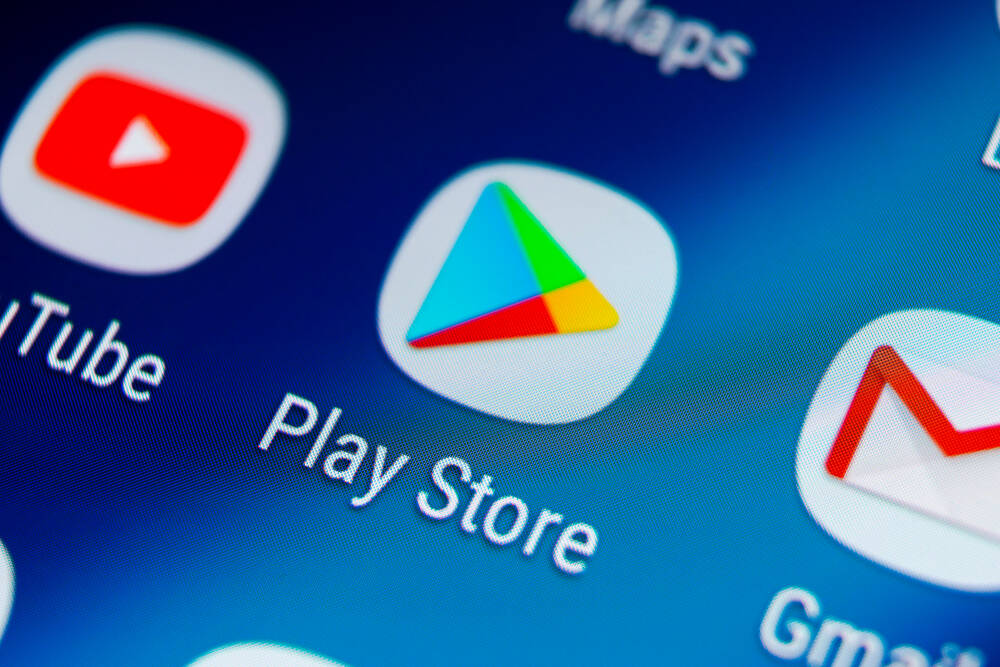Google Coughs Up $700M In Play Store Antitrust Suit

Google is to pay $700 million and overhaul some policies to settle the Play Store antitrust lawsuit launched by US states and consumers.
The September settlement, made public this week, includes $630 million that Google will pay into a fund to be distributed for the benefit of consumers, and $70 million is headed to a fund to be used by the states.
The lawsuit was initially lodged against Google in 39 jurisdictions, according to the settlement [PDF], before 50 states, the District of Columbia, and two territories decided to join "because they believe it will enhance competition in the relevant market and properly redress consumers' injuries."
The crux of the case was the allegation that Google entered into anti-competitive contracts with OEMs and mobile service providers to stop other app stores from being preloaded on Android devices. This meant consumers were forced to use the Google Play Store. According to the allegations in the settlement, this enabled Google "to extract enormous sums from consumers" through the 30 percent cut the Chocolate Factory demands from every purchase.
The terms of the settlement are broad. As well as paying the money, Google will have to stump up for an Independent Compliance Professional (ICP) to monitor the company's activities for the next five years.
It must also continue to allow sideloading of apps and third-party app stores for at least seven years and maintain Android OS support for those third-party app stores. It must also not enter into exclusivity deals with OEMs for at least five years.
Then there is the anti-steering clause, designed to force Google to allow developers to usher consumers away from the Google Play Store and toward alternative billing systems.
According to the court paperwork: "Injunctive terms of this breadth are unprecedented in US antitrust regulation of Big Tech."
- Google Groups ditches links to Usenet, the OG social network
- Google hopes to end tsunami of data dragnet warrants with Location History shakeup
- Google Pixel gets privacy mode to keep your selfies safe from prying repair techs
- Google pencils in limited third-party cookie purge for January
While accepting the settlement, Google said that it had always permitted third-party app stores. It also managed to get a jab at Apple over sideloading, saying:
"Unlike on iOS, Android users have the option to sideload apps, meaning they can download directly from a developer's website without going through an app store like Google Play."
This is true. However, the company also said it would be simplifying the process and "updating the language that informs users about these potential risks of downloading apps directly from the web for the first time."
The settlement was published shortly after Epic's recent win over allegations that Google's Play Store is an illegal monopoly. The search giant growled: "We are challenging that verdict and our case with Epic is far from over."
While the sums might look substantial, the amounts distributed to all the consumers involved will be a little less. According to the agreement: "Each Eligible Consumer will receive at least $2 and will receive additional payments in proportion to their Google Play spending during the period between August 16, 2016 and September 30, 2023."
Google's parent company, Alphabet, recently revealed revenues of $76.7 billion and net income of $19.689 billion for the quarter ended September 30. ®
From Chip War To Cloud War: The Next Frontier In Global Tech Competition
The global chip war, characterized by intense competition among nations and corporations for supremacy in semiconductor ... Read more
The High Stakes Of Tech Regulation: Security Risks And Market Dynamics
The influence of tech giants in the global economy continues to grow, raising crucial questions about how to balance sec... Read more
The Tyranny Of Instagram Interiors: Why It's Time To Break Free From Algorithm-Driven Aesthetics
Instagram has become a dominant force in shaping interior design trends, offering a seemingly endless stream of inspirat... Read more
The Data Crunch In AI: Strategies For Sustainability
Exploring solutions to the imminent exhaustion of internet data for AI training.As the artificial intelligence (AI) indu... Read more
Google Abandons Four-Year Effort To Remove Cookies From Chrome Browser
After four years of dedicated effort, Google has decided to abandon its plan to remove third-party cookies from its Chro... Read more
LinkedIn Embraces AI And Gamification To Drive User Engagement And Revenue
In an effort to tackle slowing revenue growth and enhance user engagement, LinkedIn is turning to artificial intelligenc... Read more

